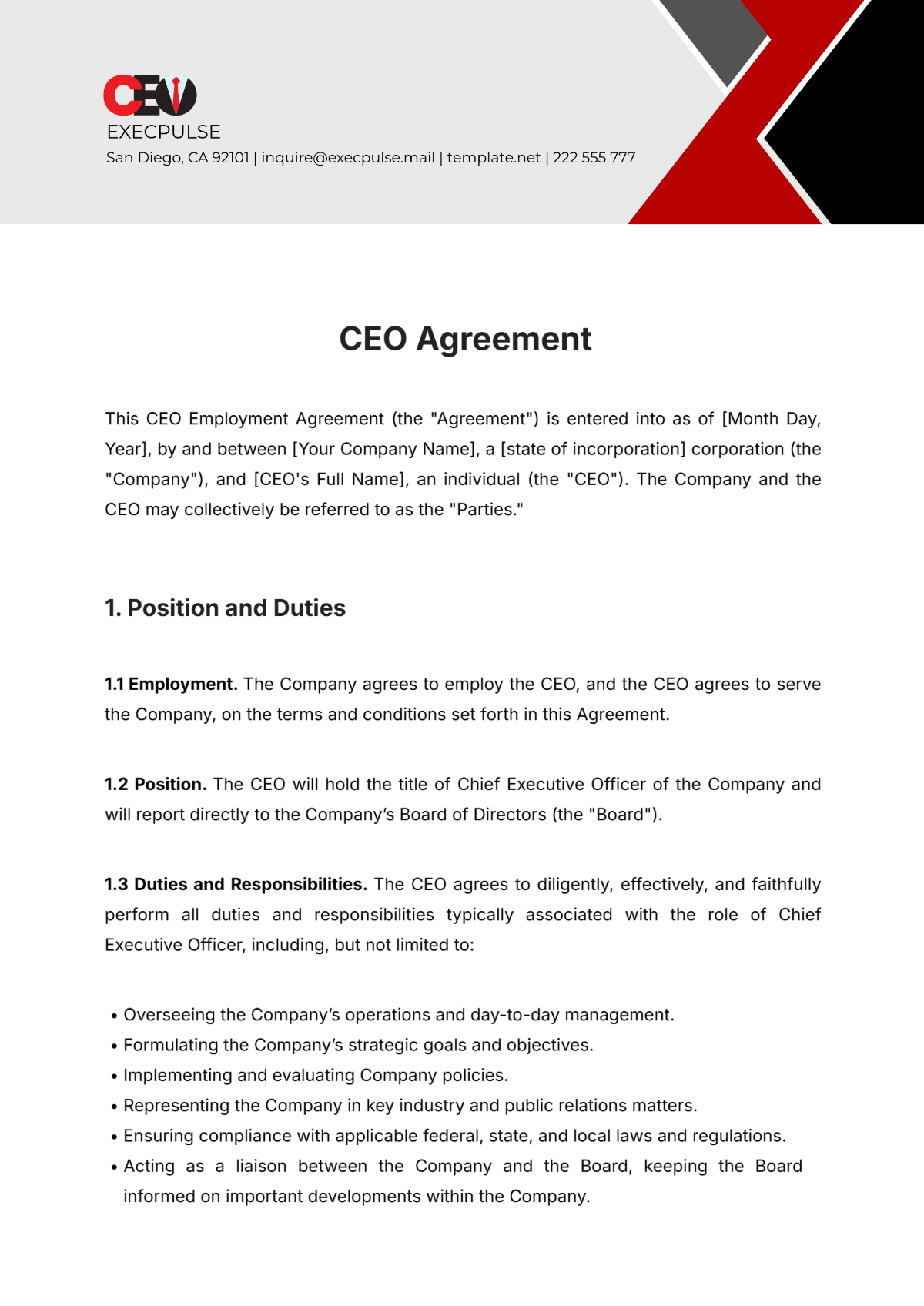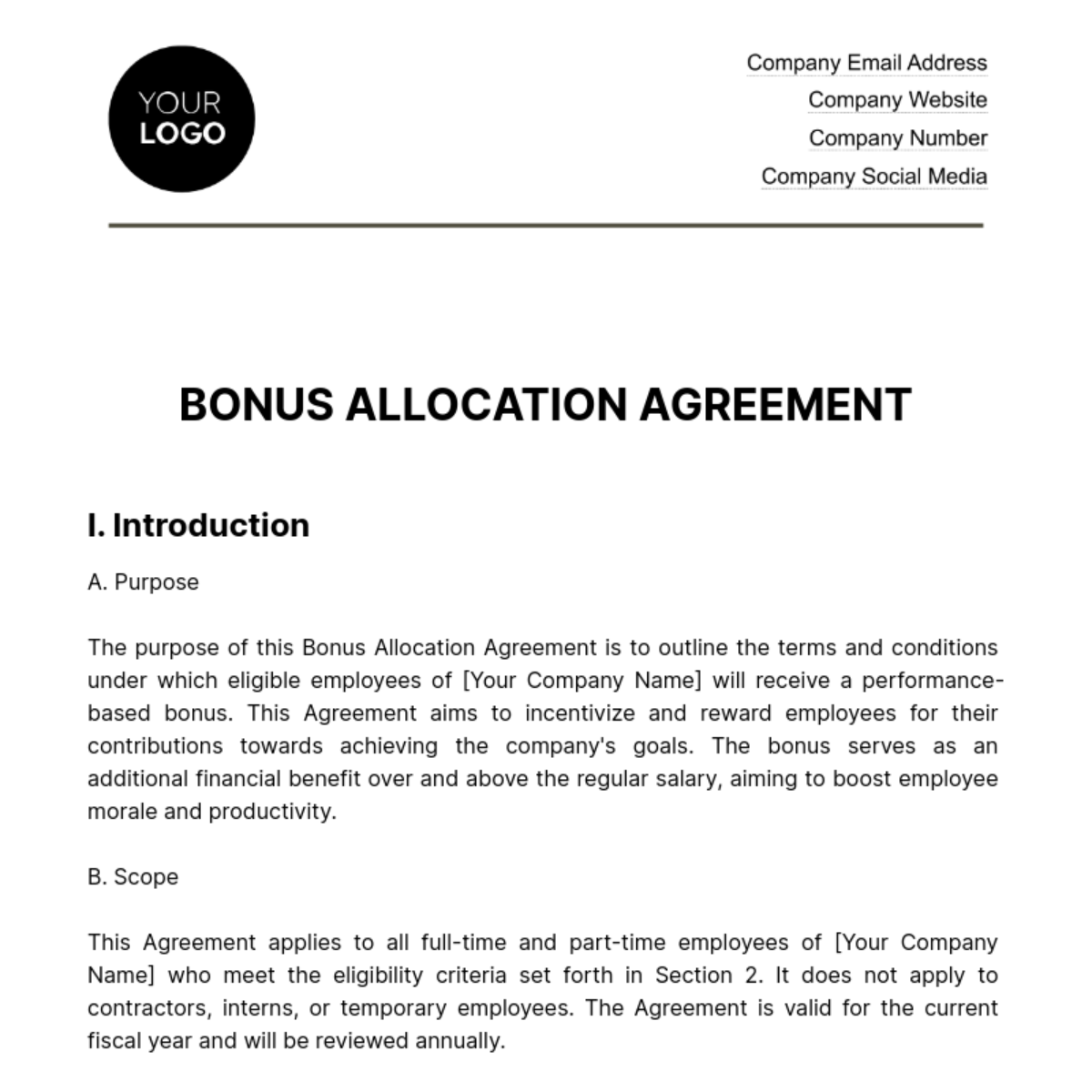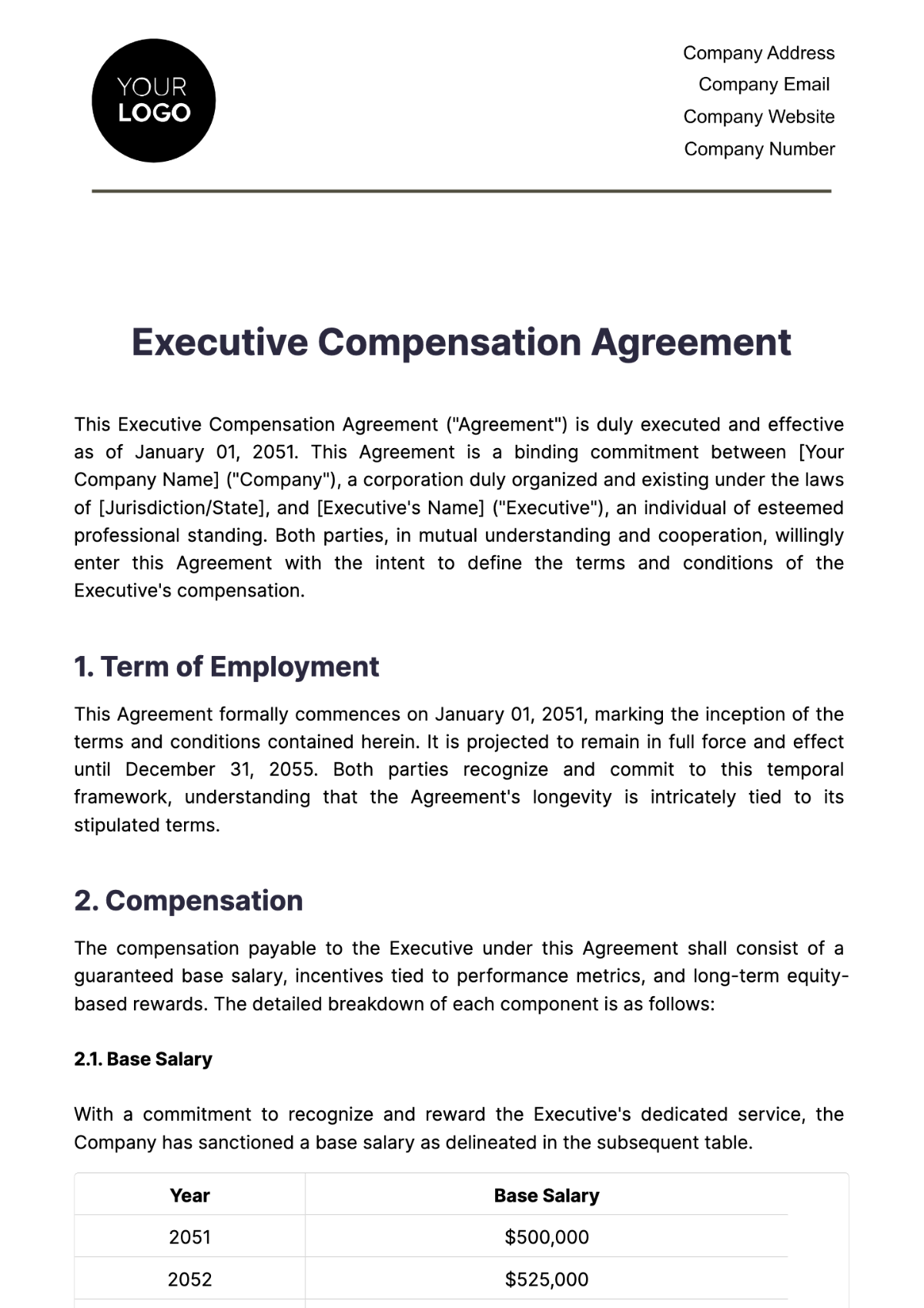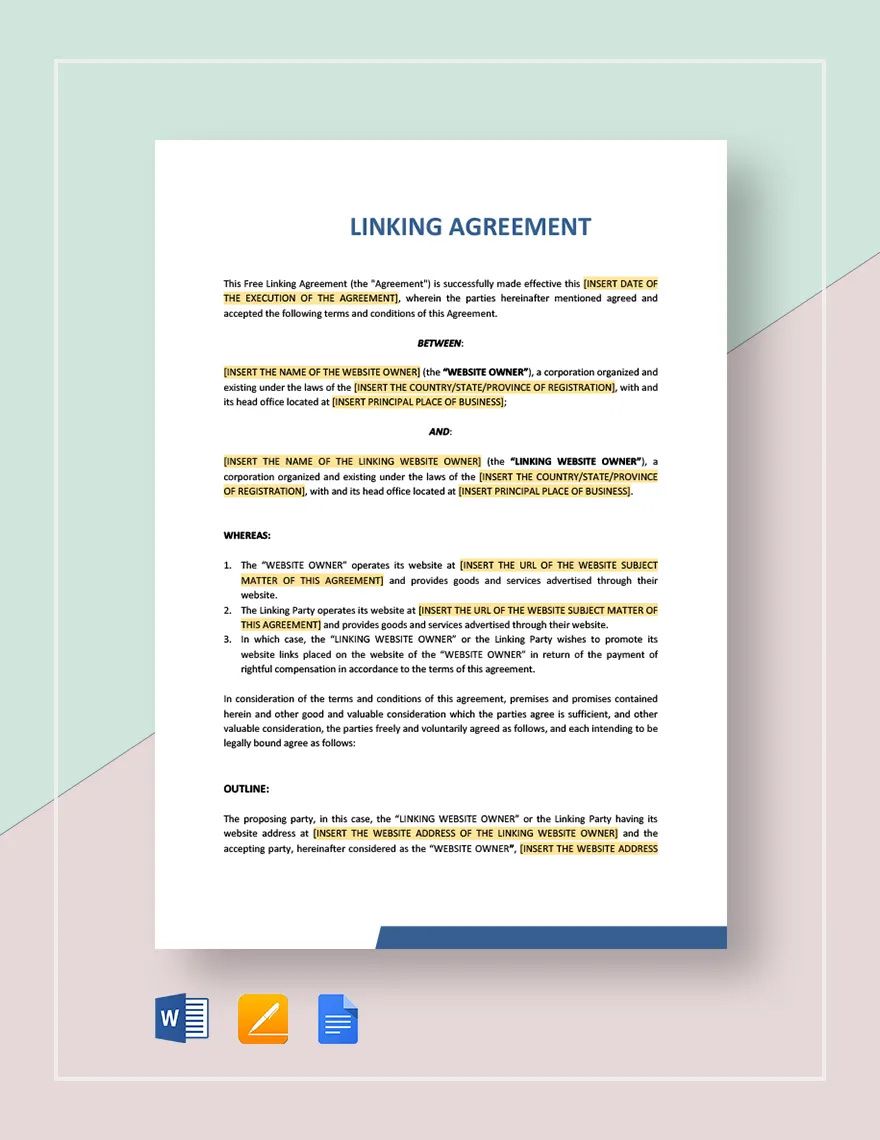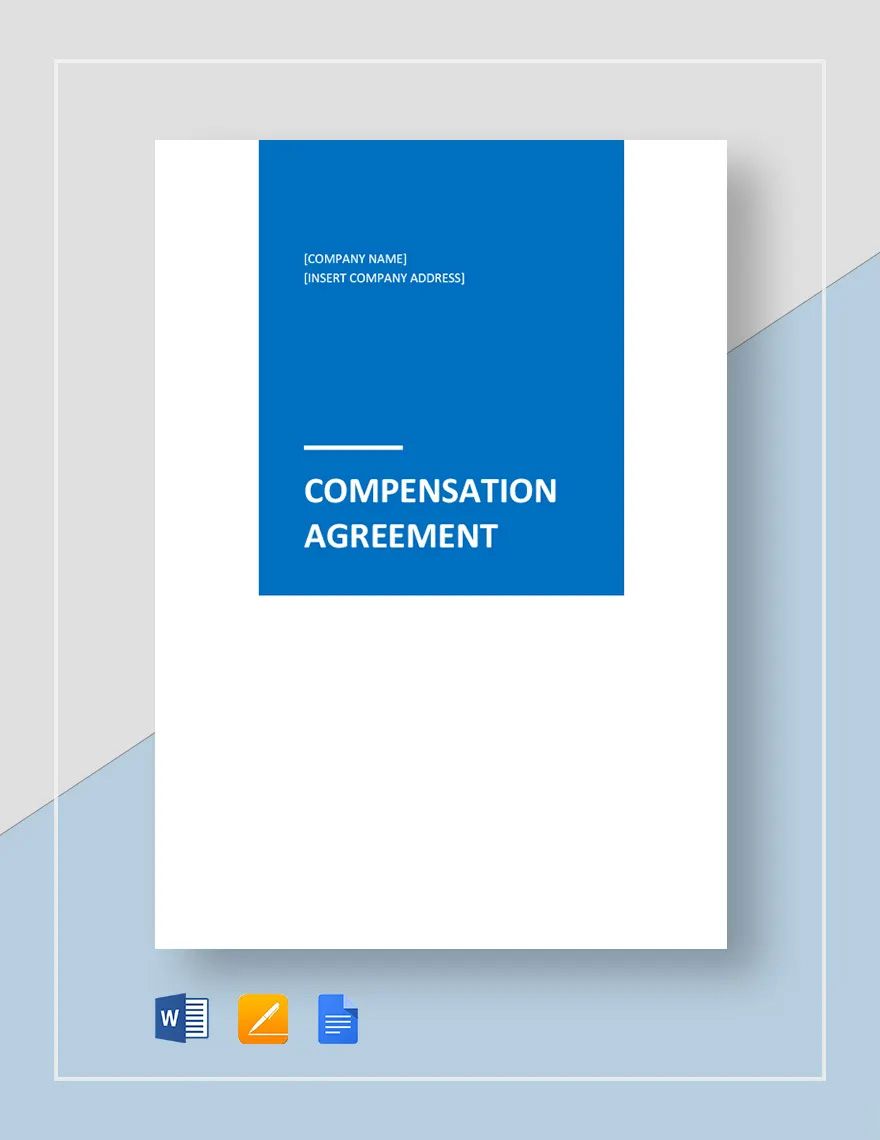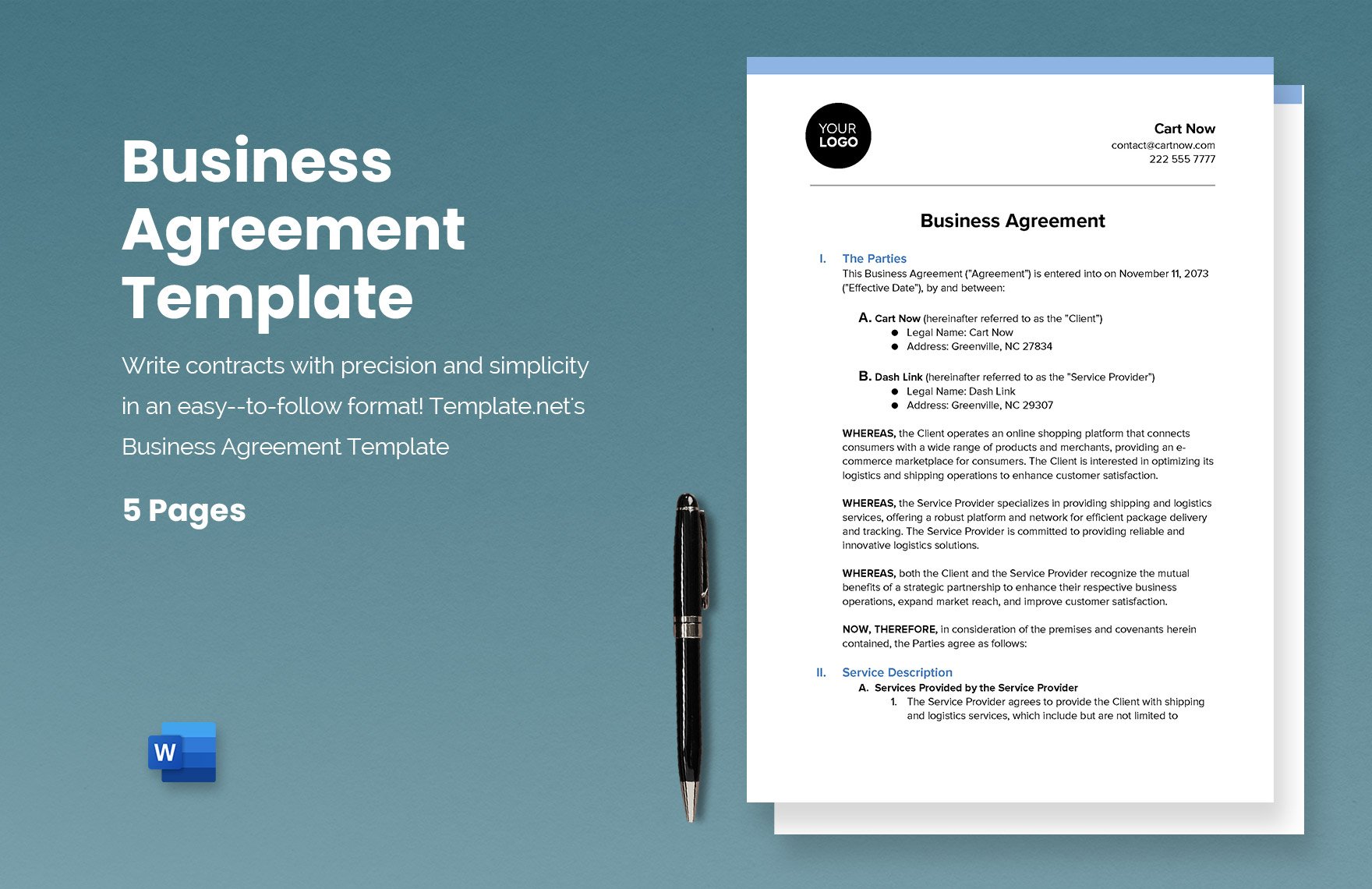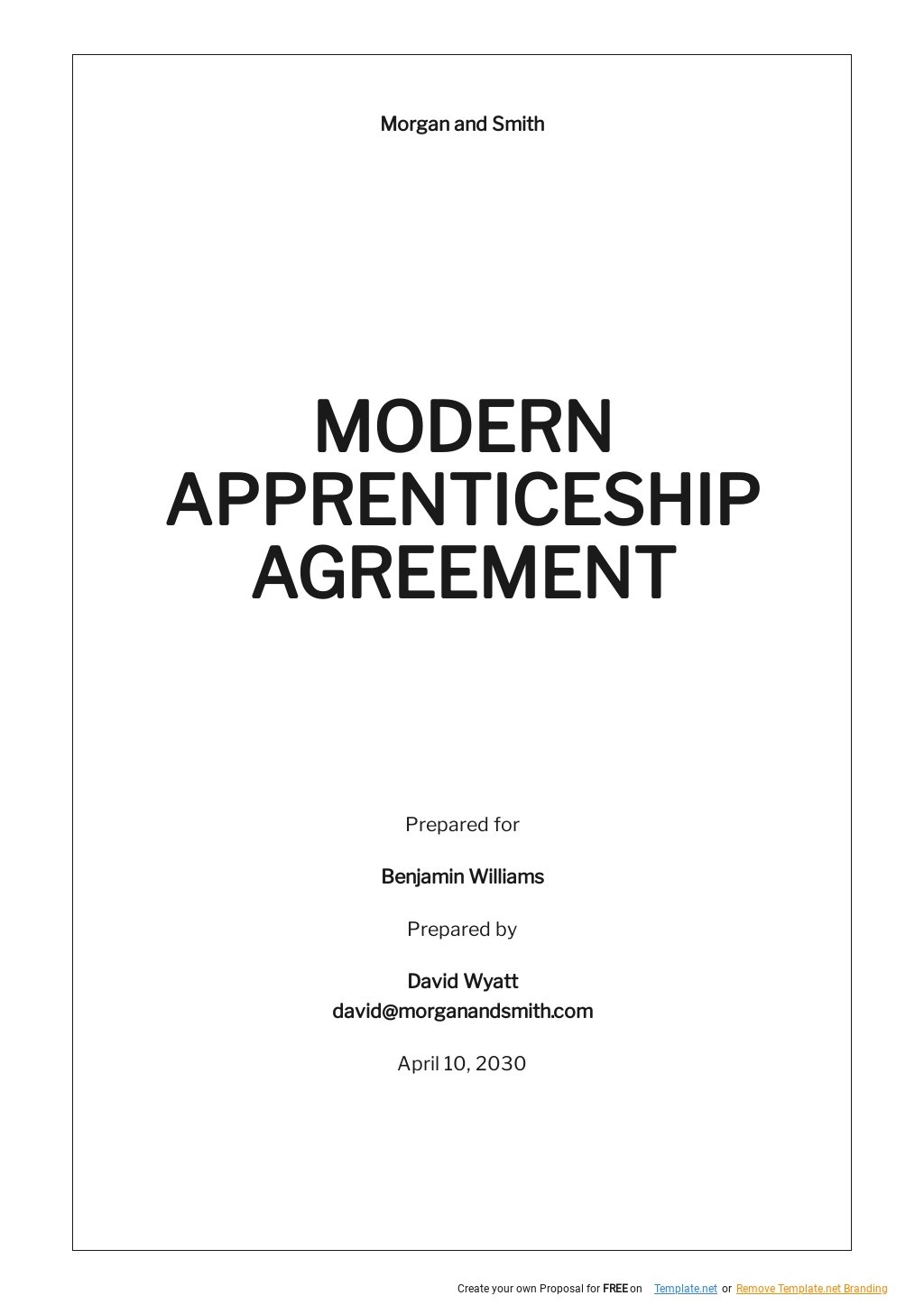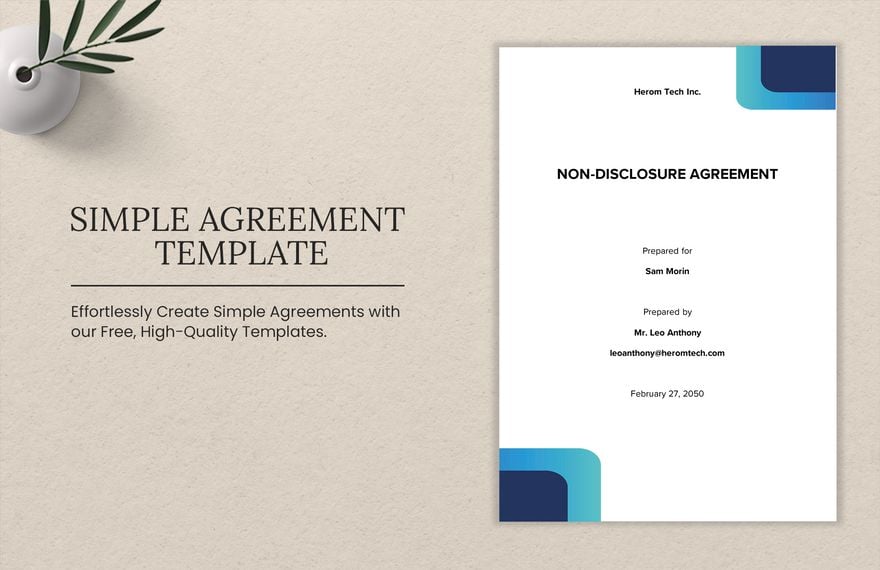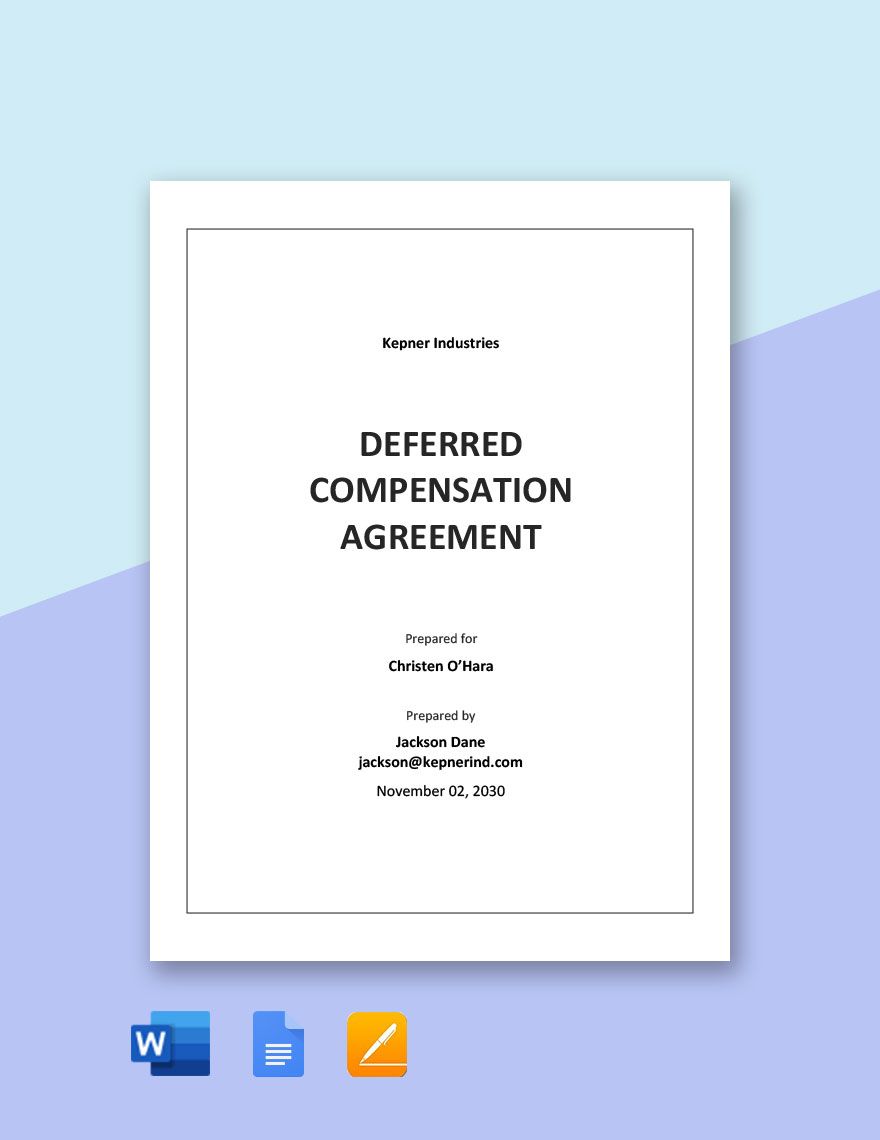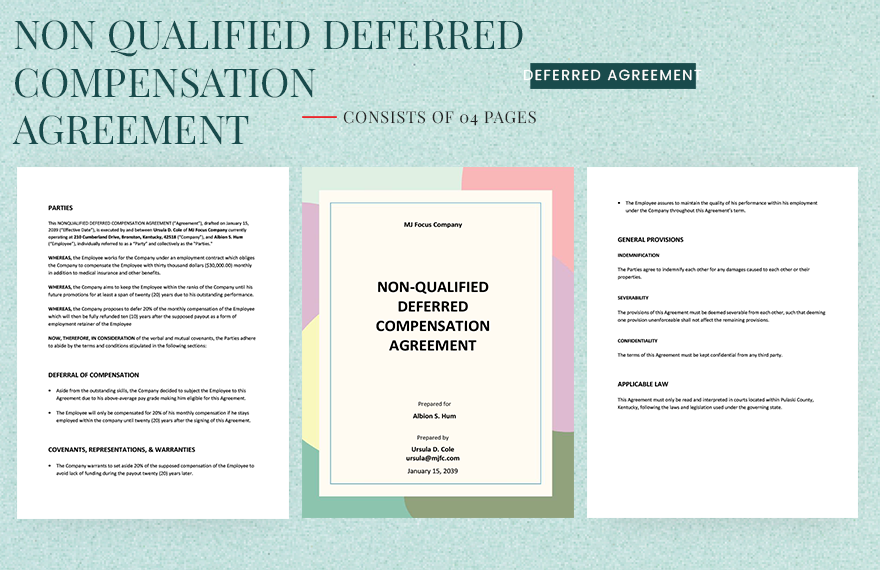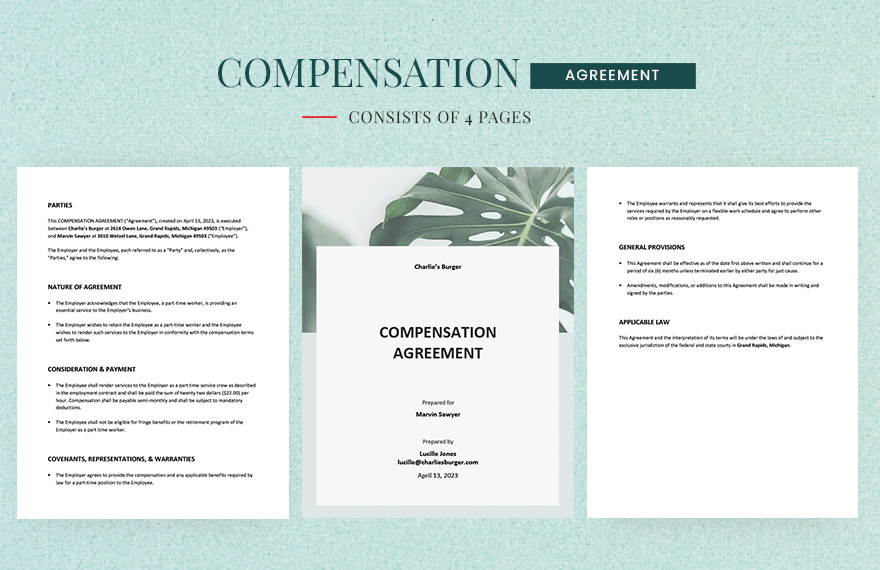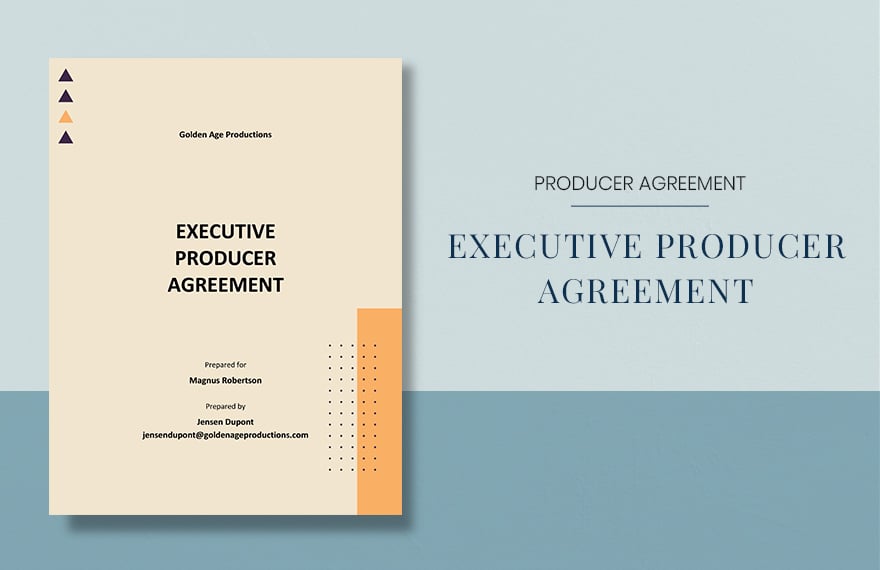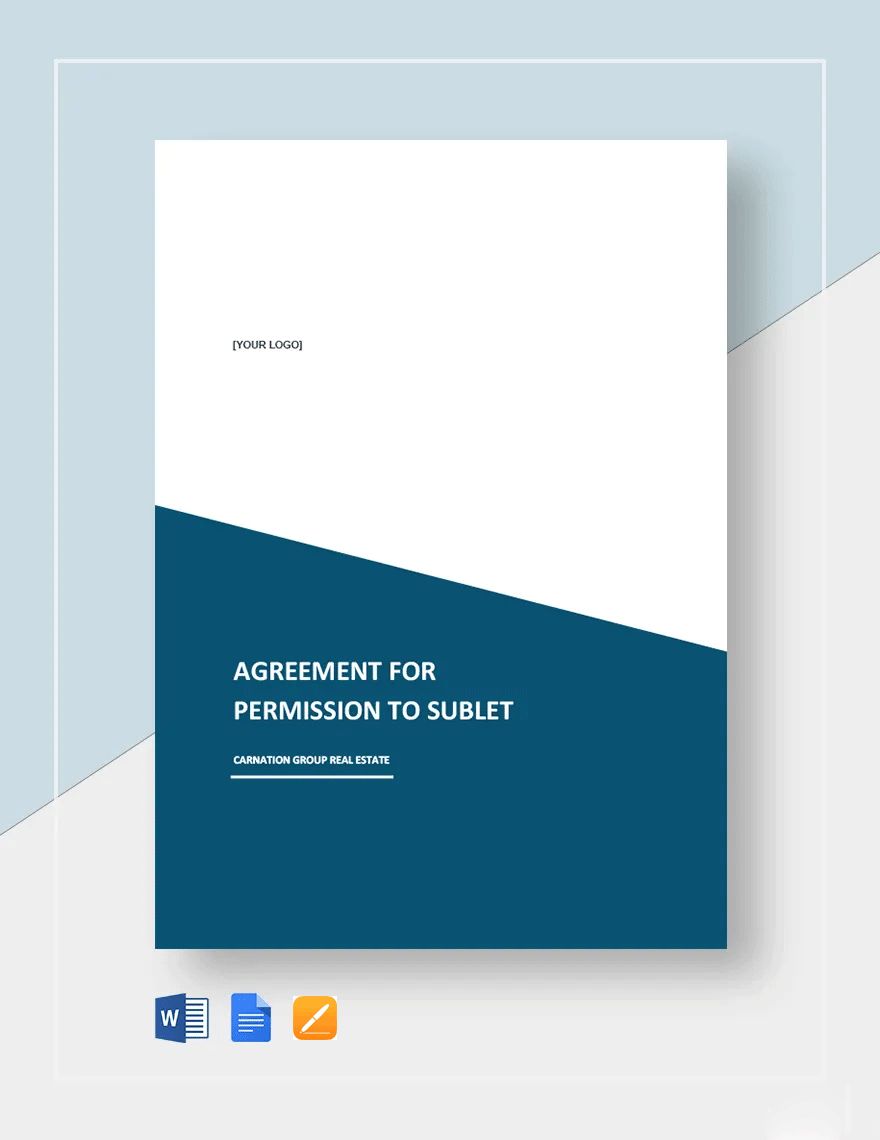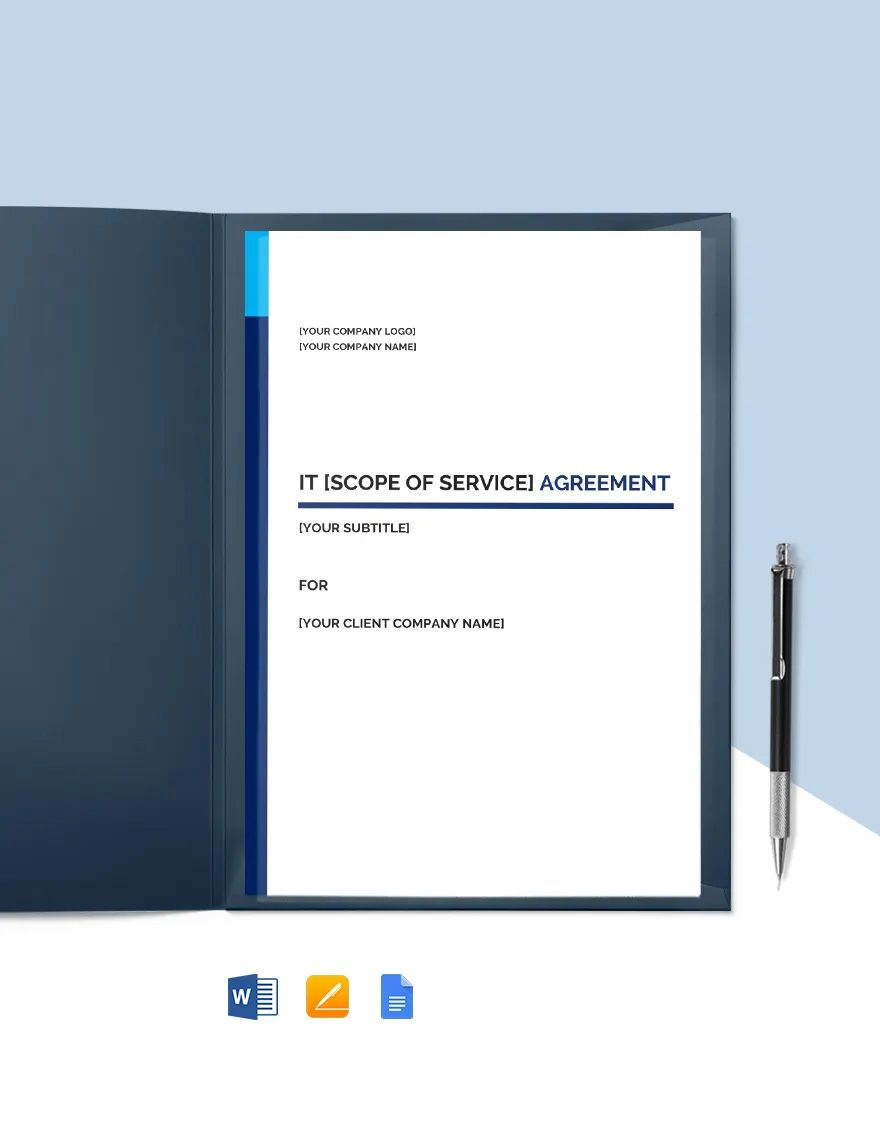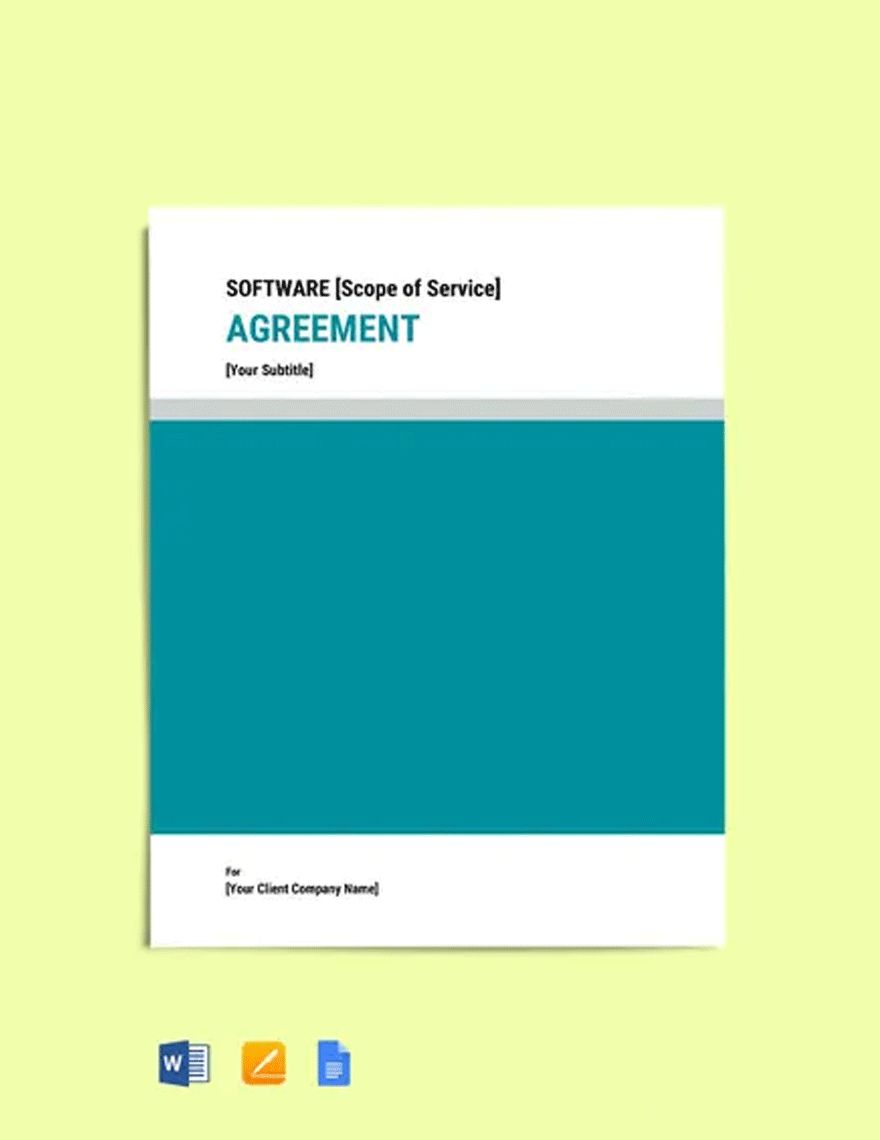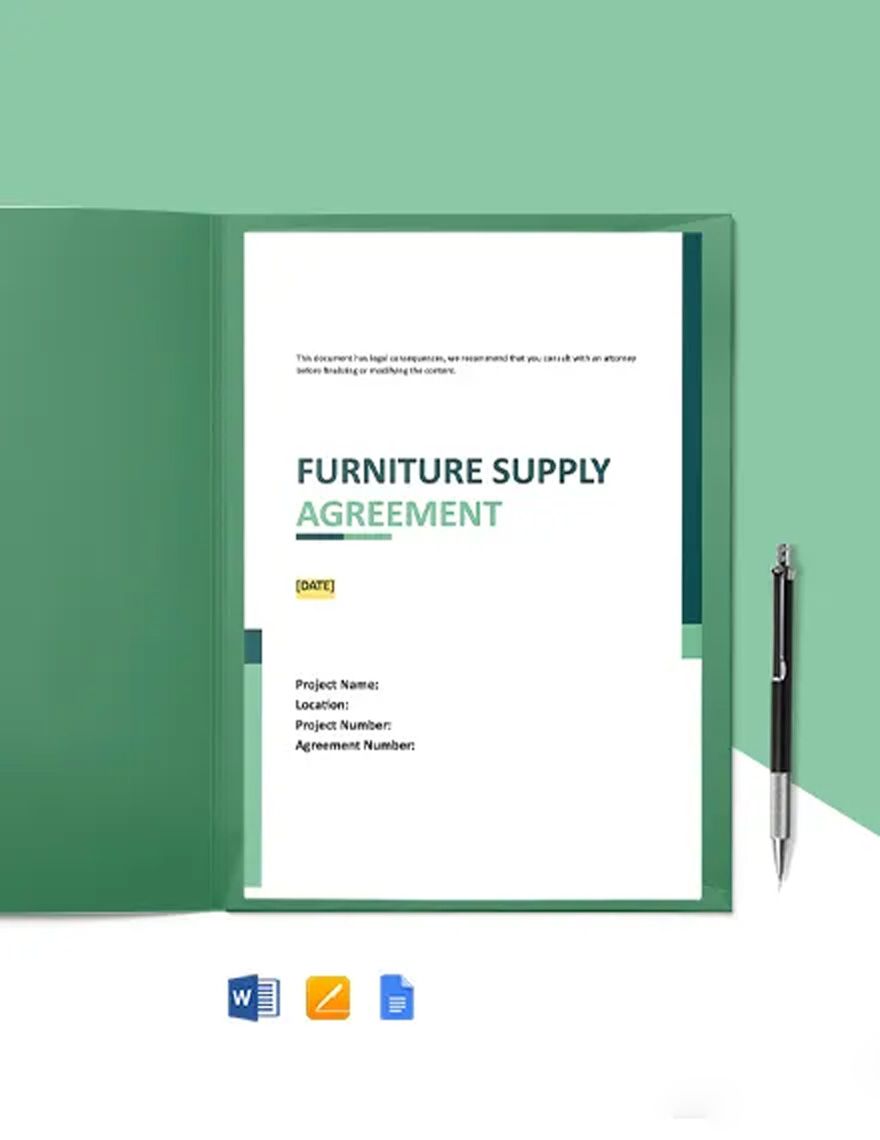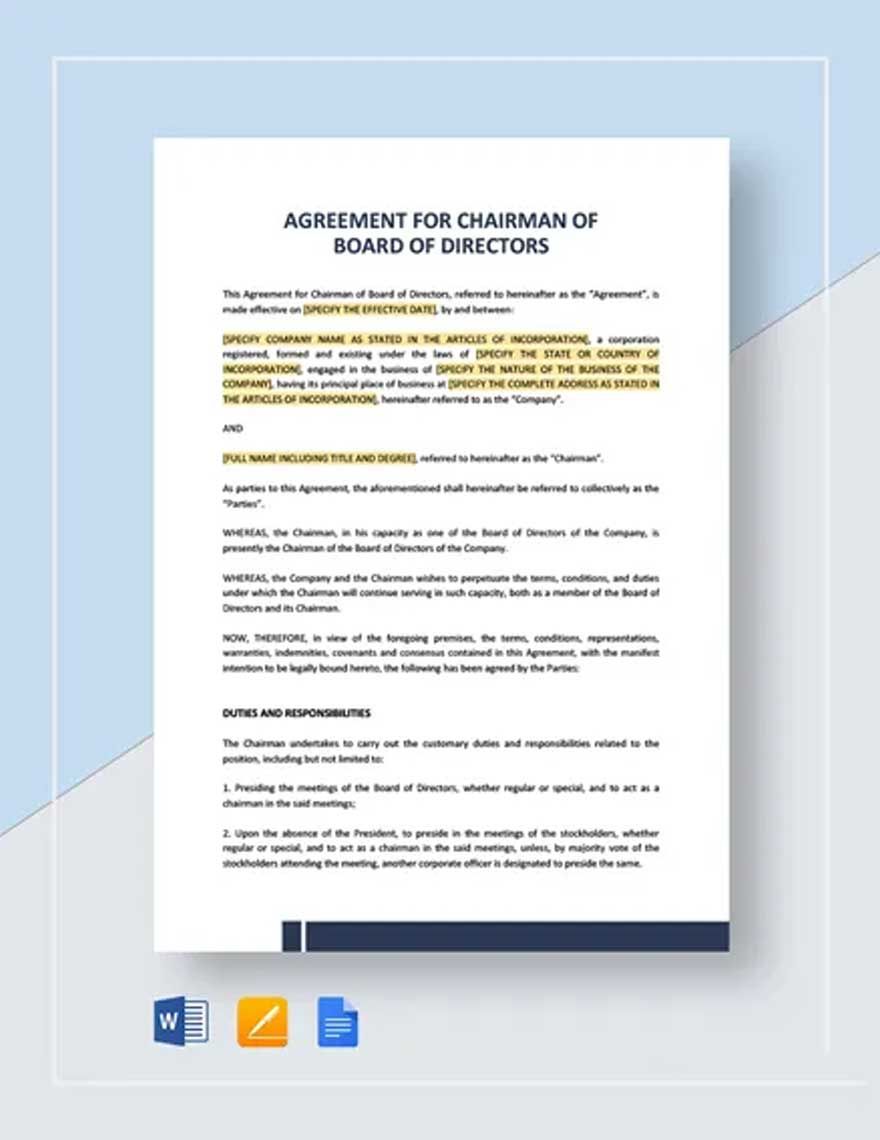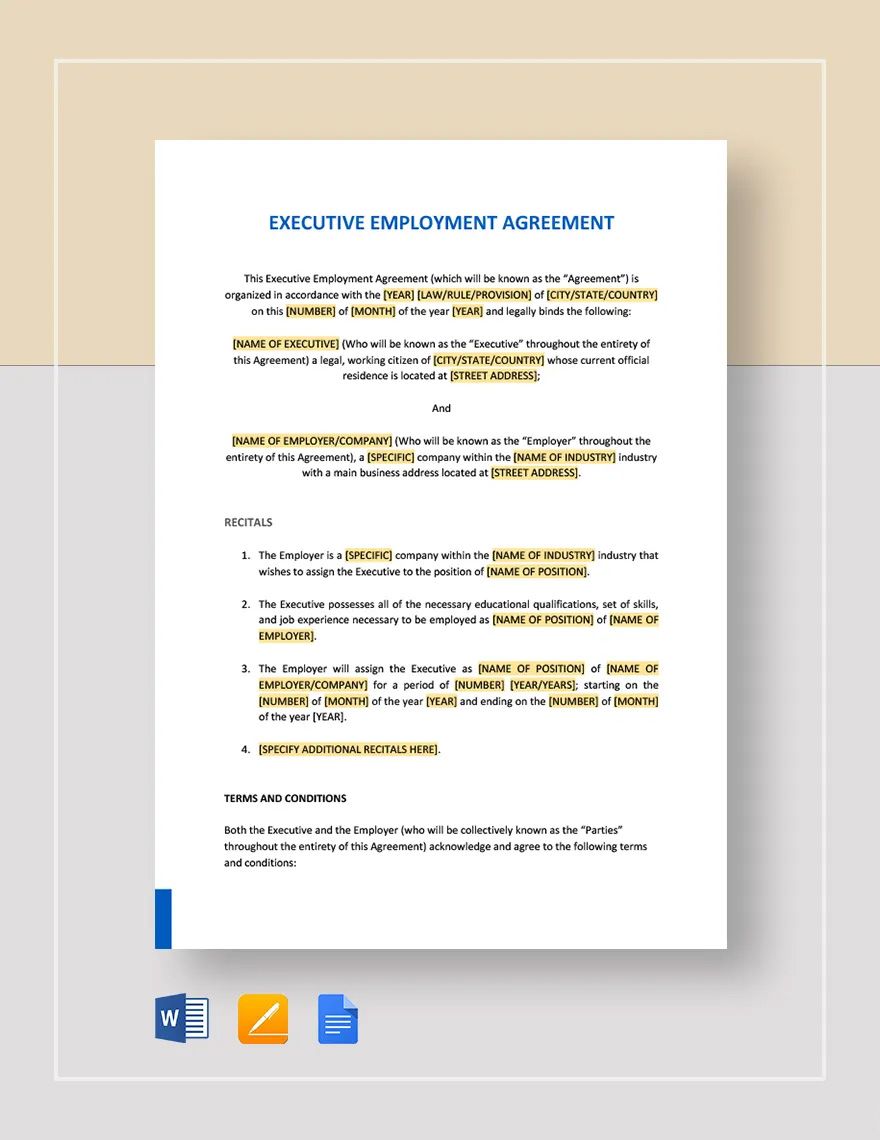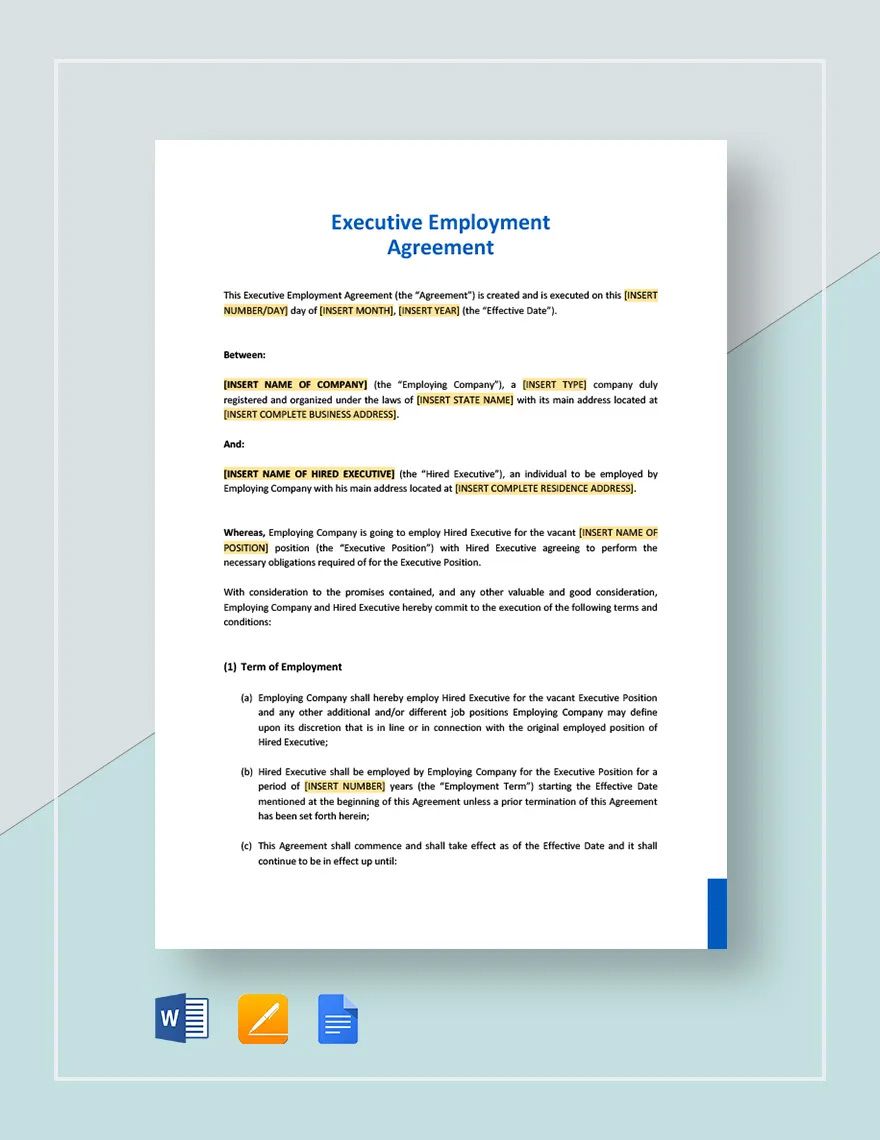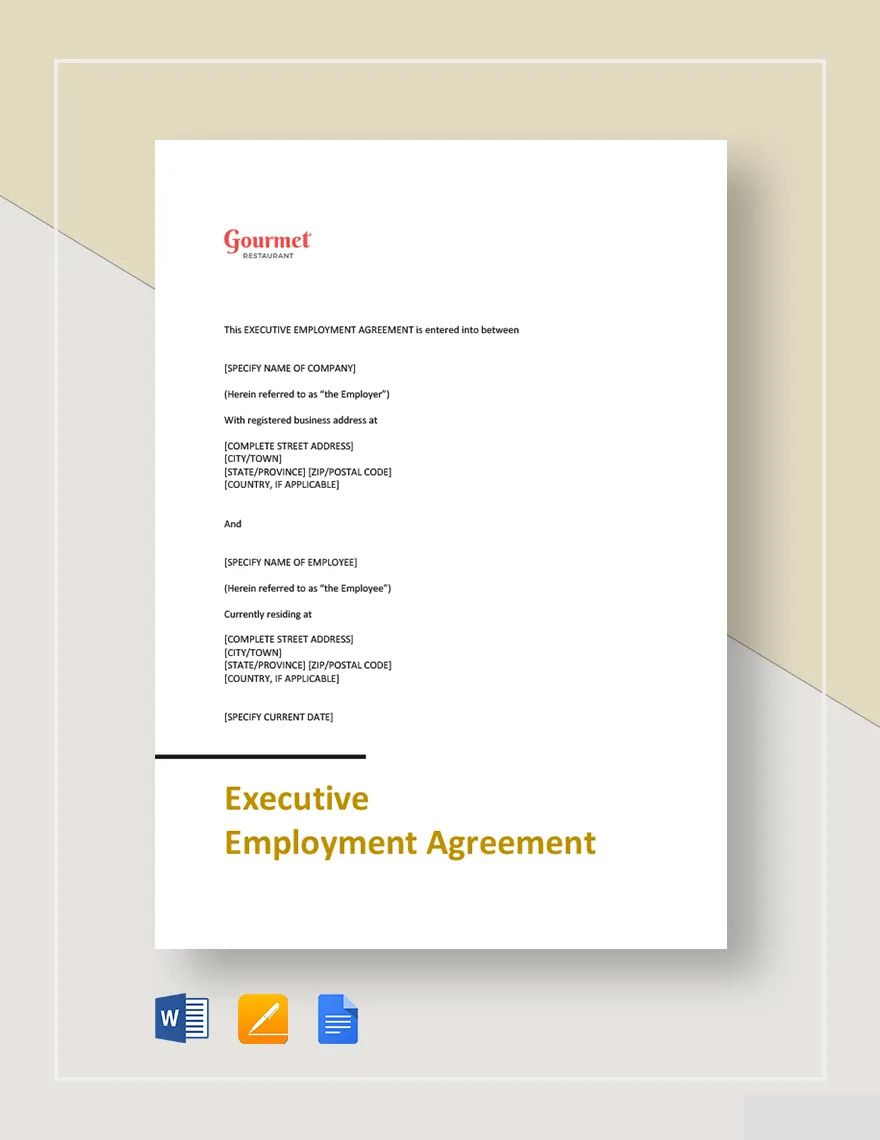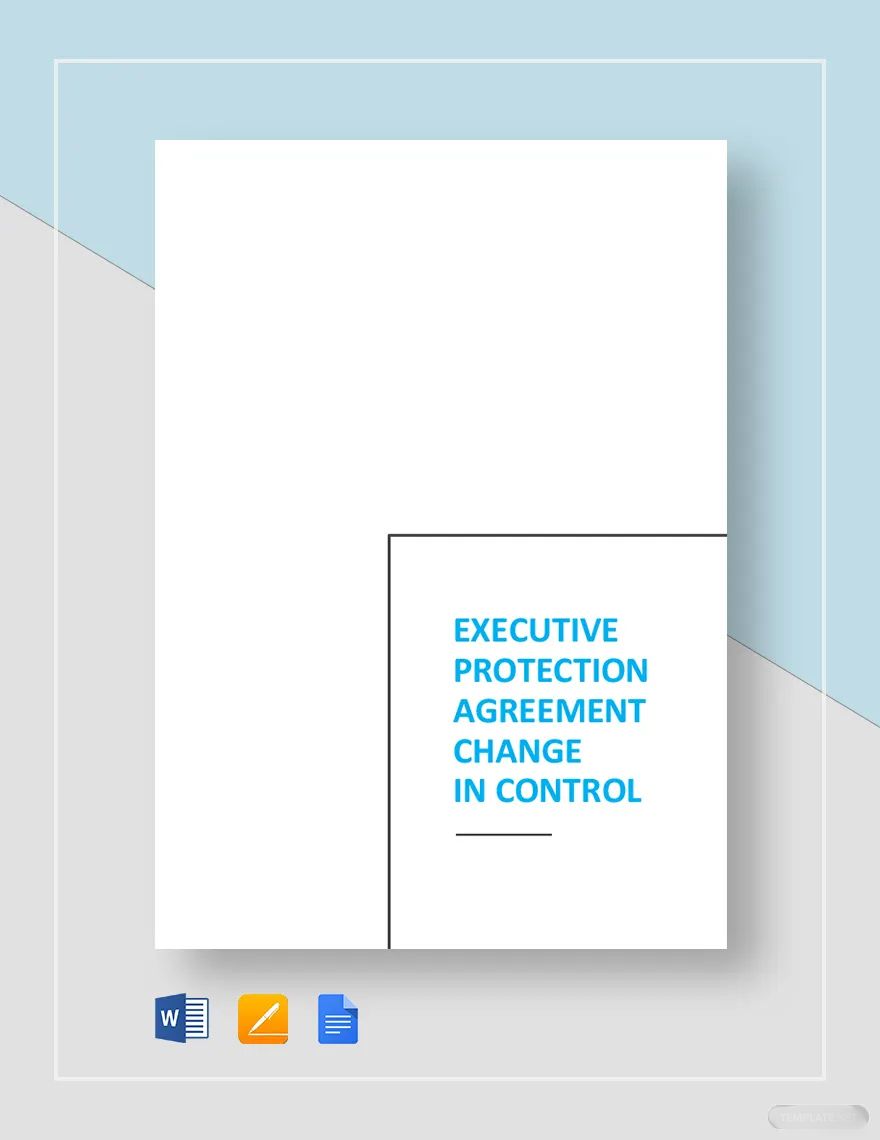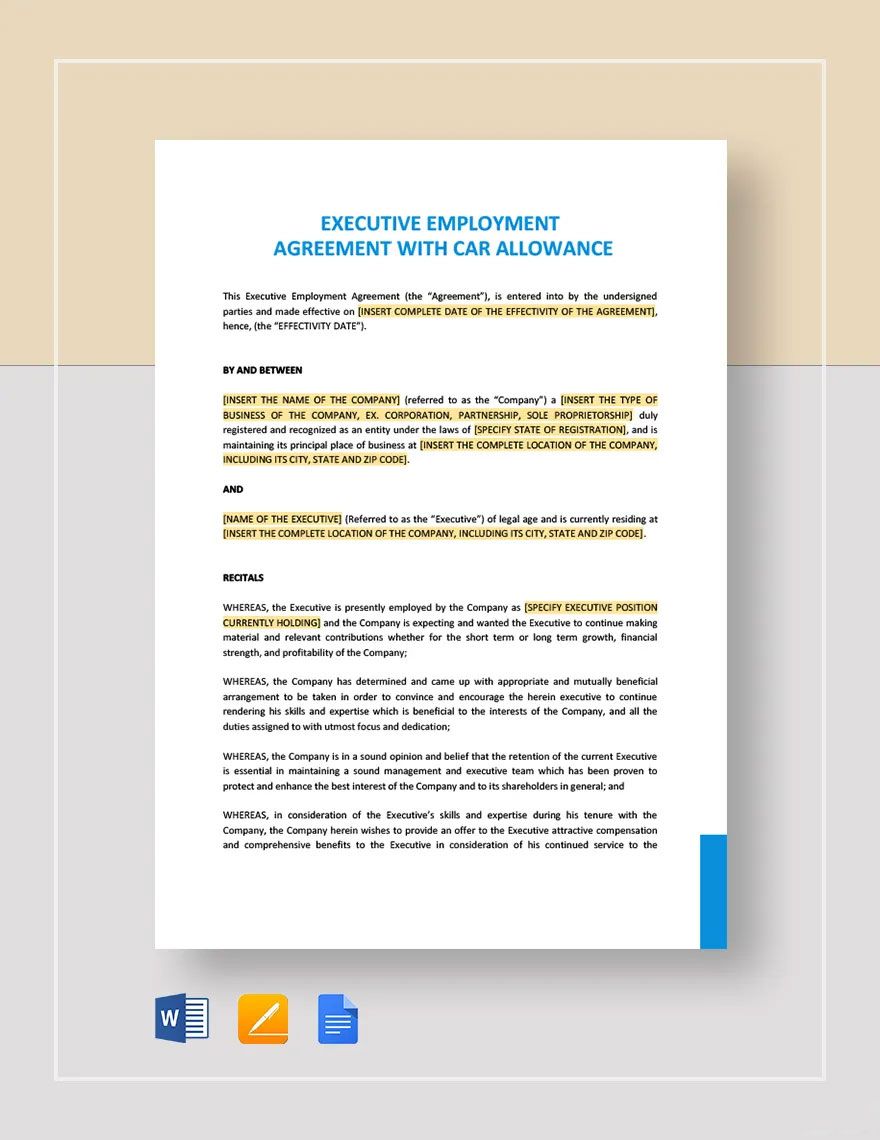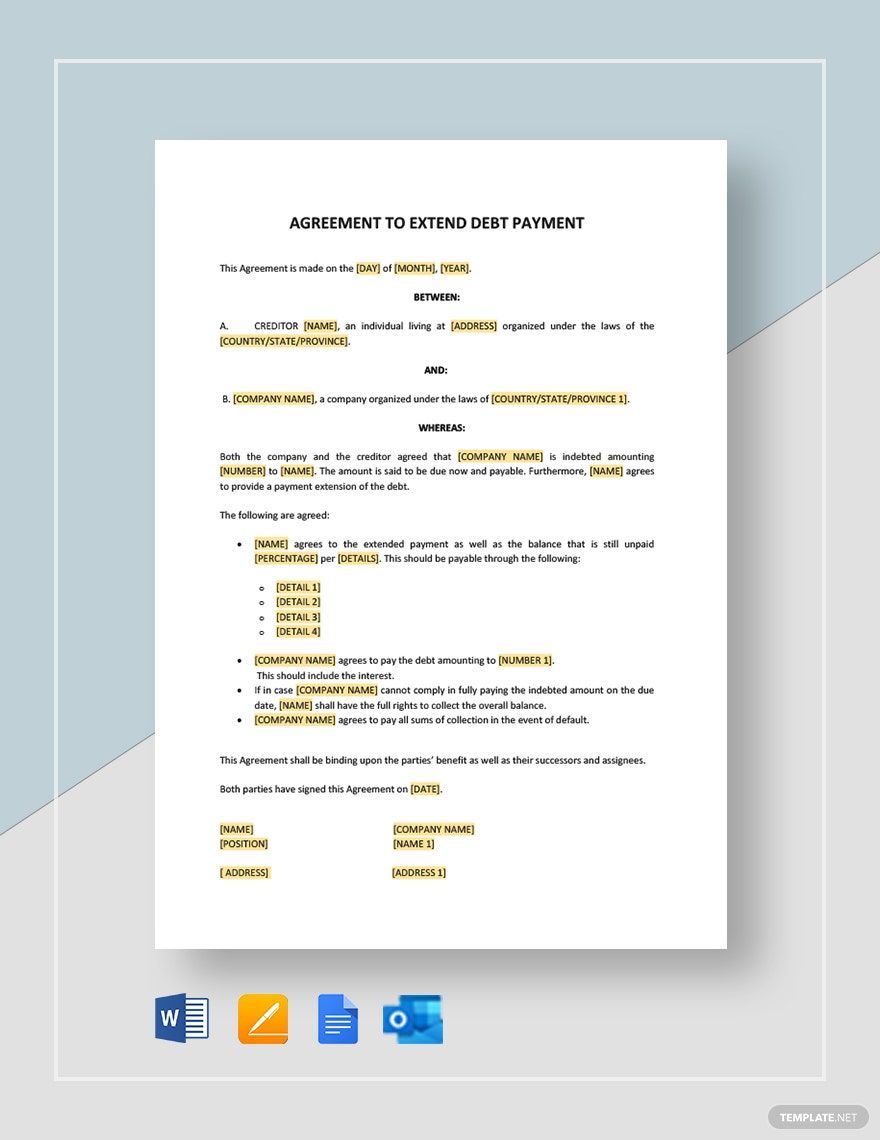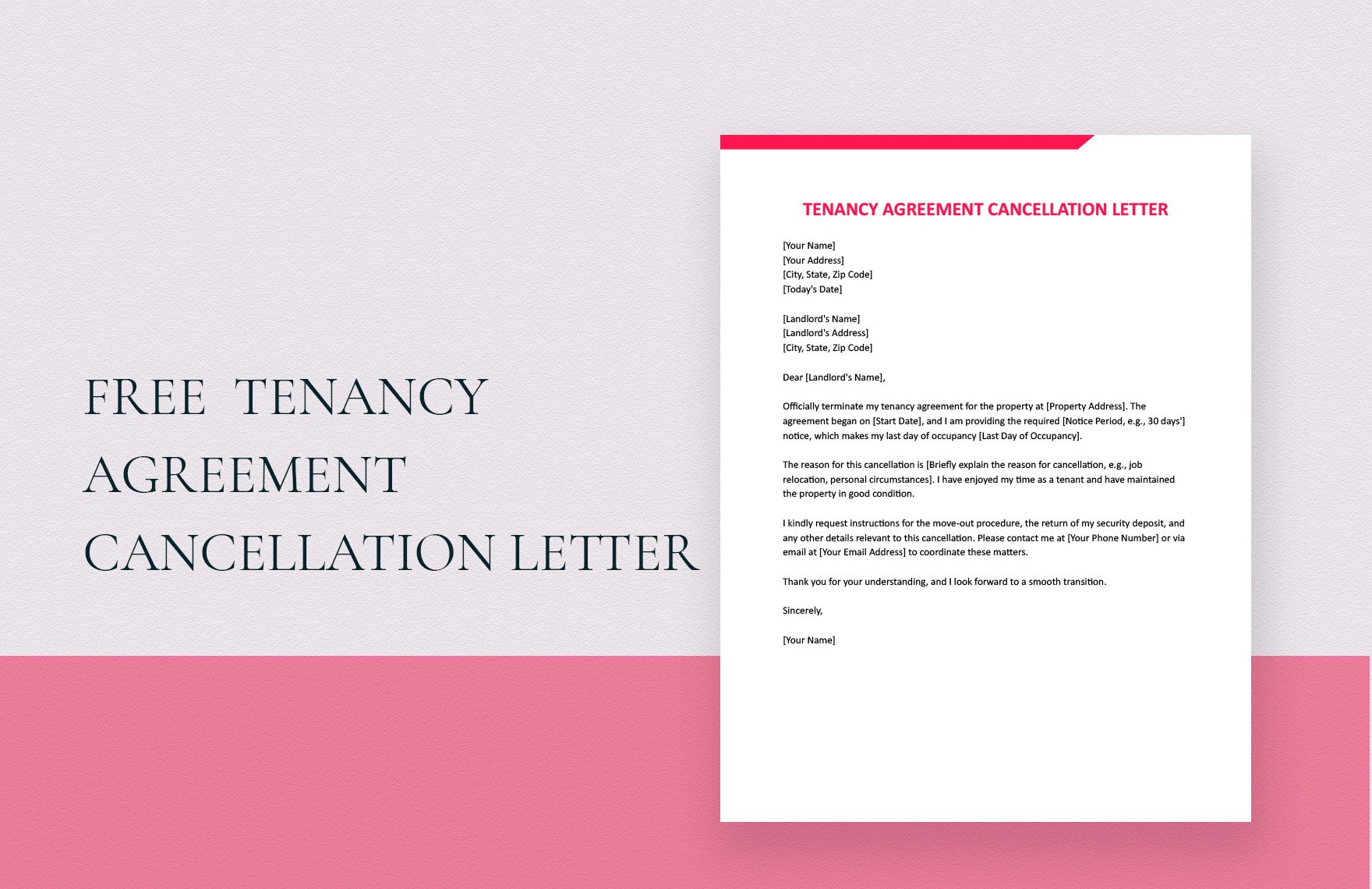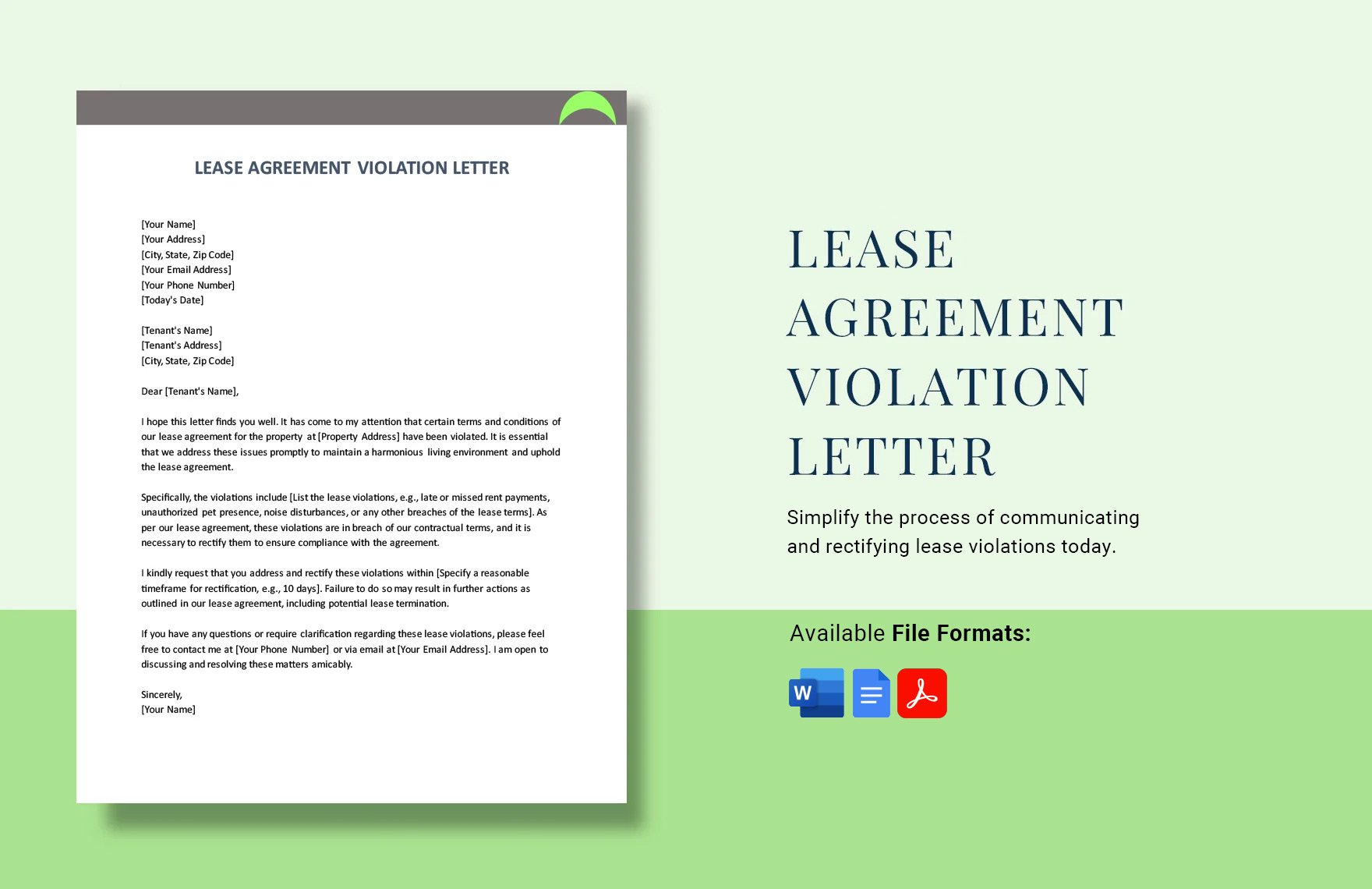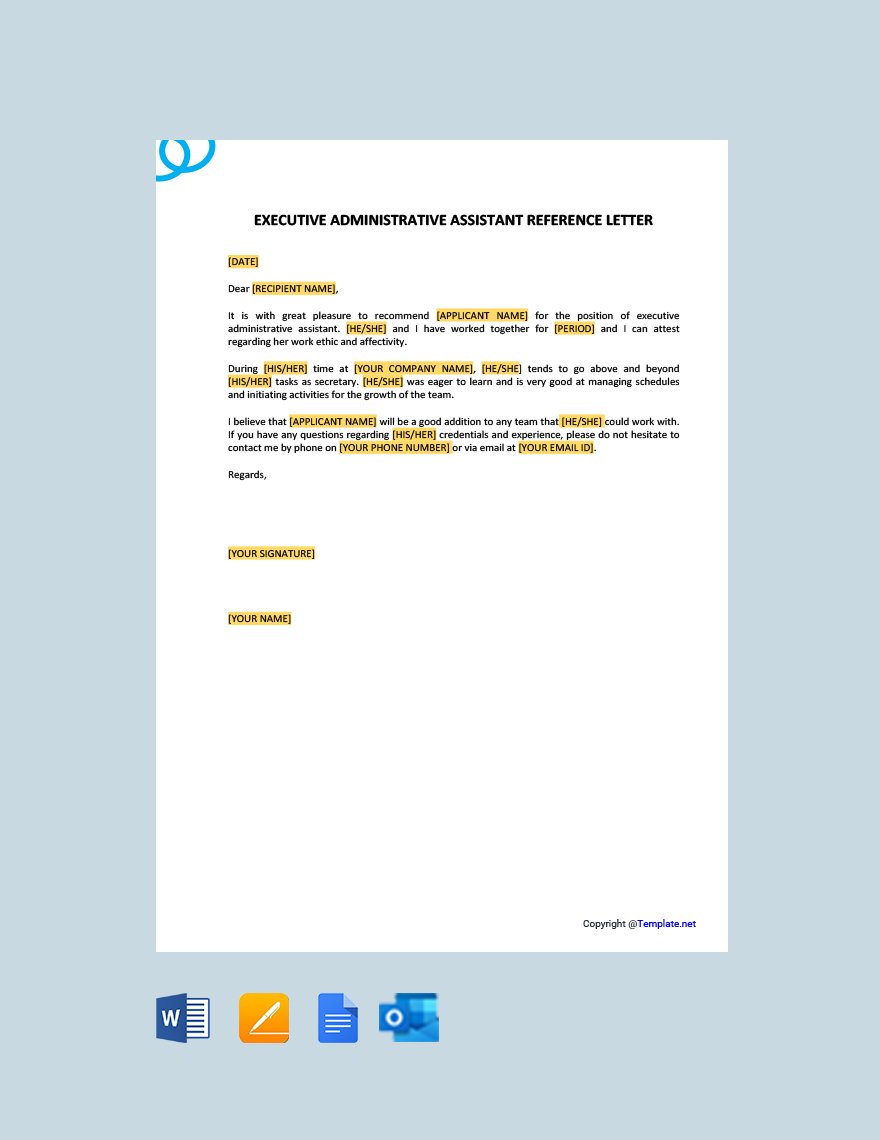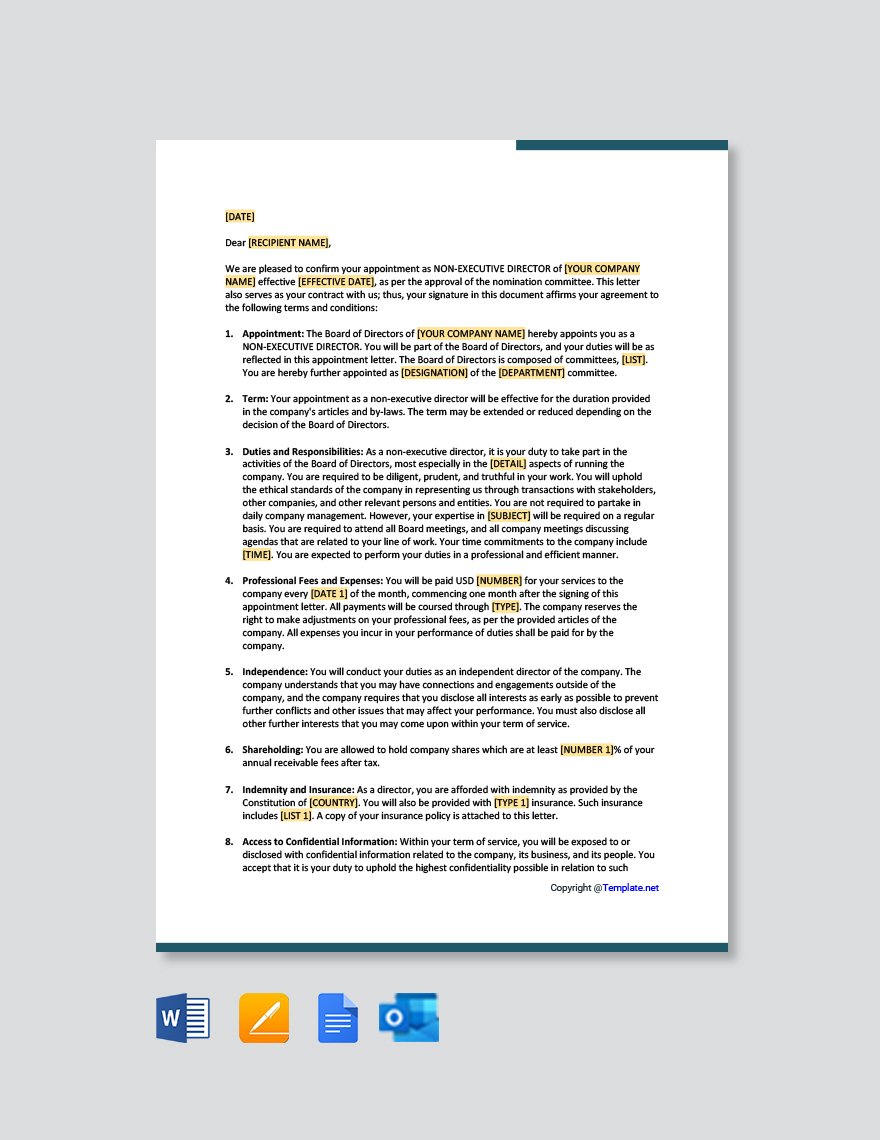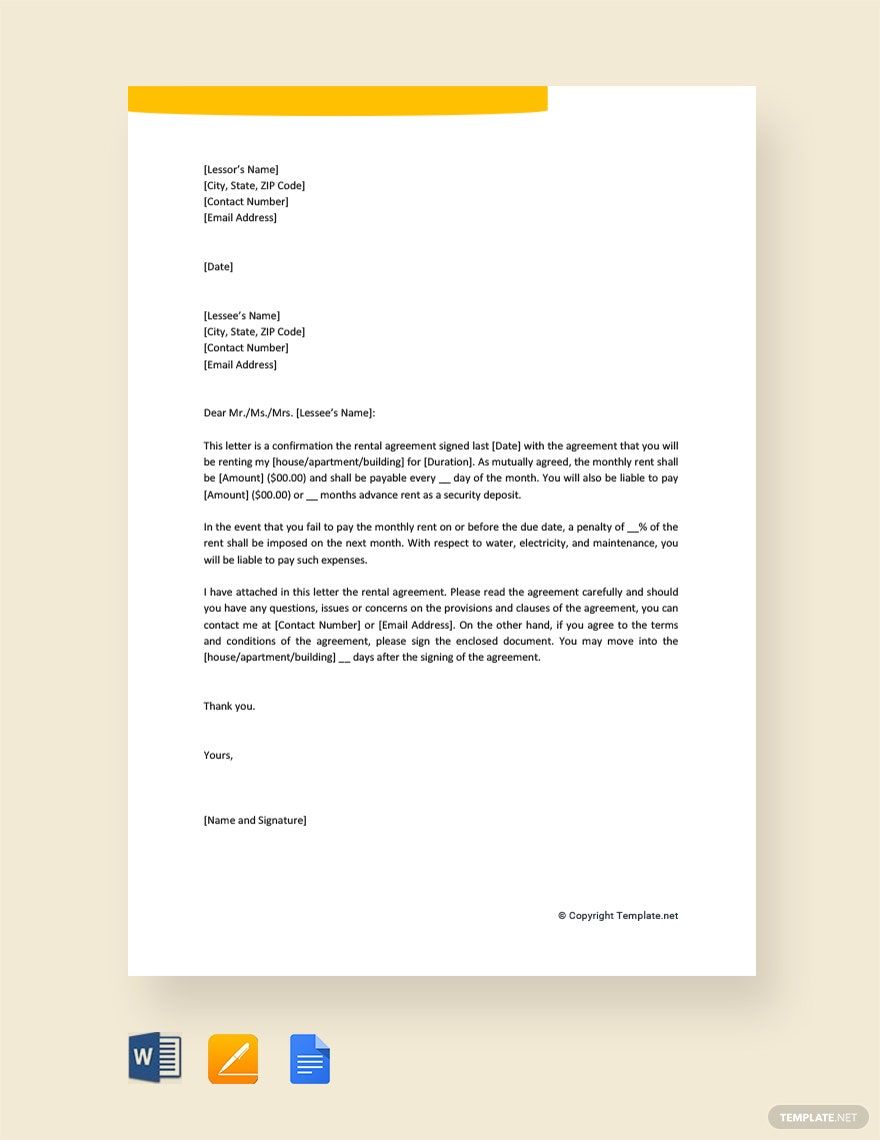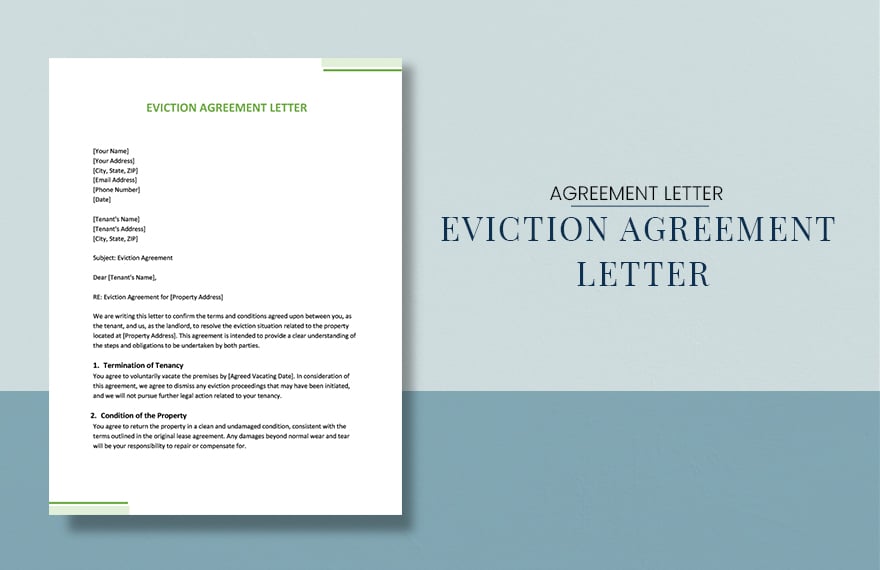Bring Your Professional Collaborations to Life with Executive Agreement Templates from Template.net
Keep your business dealings organized, efficient, and professional with Executive Agreement Templates from Template.net. Tailored for industry leaders, entrepreneurs, and legal professionals, these templates empower you to streamline the process of crafting comprehensive executive agreements, ensuring every critical detail is covered with precision. Whether you're arranging a high-stakes partnership with a key stakeholder or formalizing the terms of a C-suite executive's contract, our templates provide a framework that promotes clarity and mutual understanding. Each template includes essential sections for timeframes, compensation, responsibilities, and more, eliminating the guesswork and reducing the need for expensive legal consultations. Rest assured, no advanced legal skills are required to make the most of these expertly designed templates, allowing you to save both time and resources while maintaining a professional standard.
Discover the many Executive Agreement Templates we have on hand to suit any professional scenario. Start by selecting a template that matches your specific needs and easily swap in existing assets, modify text, and adjust colors and fonts to reflect your company branding. With intuitive drag-and-drop capabilities, you can seamlessly incorporate graphics or logos and even add sophisticated animated effects for digital presentations. Our AI-powered text tools help refine your language, ensuring precision without the hassle. With regularly updated templates that keep up with market trends, you'll always have fresh designs at your fingertips. When you're finished, effortlessly download or share your tailored agreement via email or print format, ideal for multiple channels and collaborative environments.
